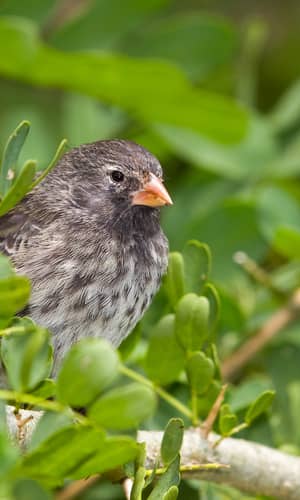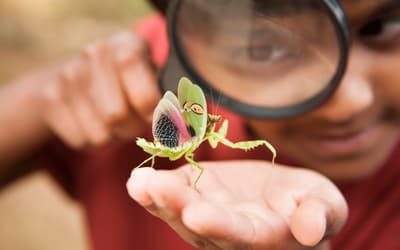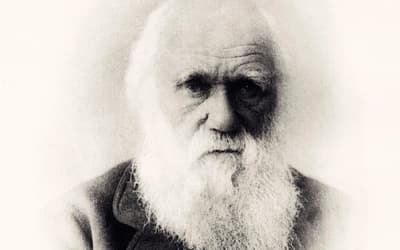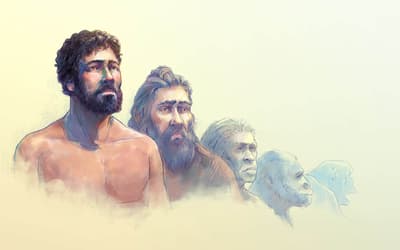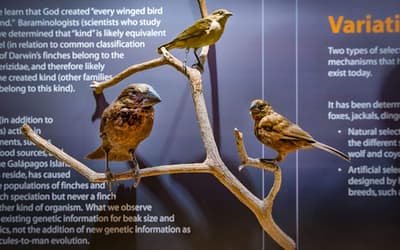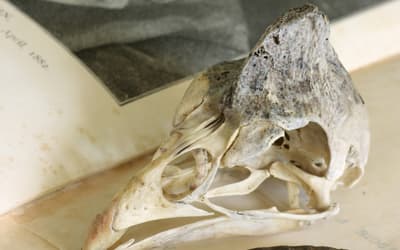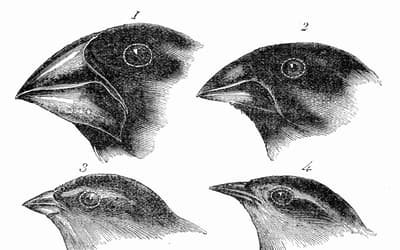The views expressed in this paper are those of the writer(s) and are not necessarily those of the ARJ Editor or Answers in Genesis.
Abstract
In December of 2018 a paper by astrophysicist Jason Lisle appeared in the Answers Research Journal entitled, “Refuting Dubious Claims Regarding Natural Selection.” I am confident that the intent of the author was to promote the best, most logical arguments within the creation community. Unfortunately, the article puts forth a number of dubious and misleading claims of its own, a few of which are addressed here. Lisle’s article targets the writing of a single creationist, Randy Guliuzza, and misses the logical inconsistency in a paper he cites favorably, which also targets Guliuzza. Guliuzza and Gaskill’s (2018) recent peer-reviewed ICC article was not cited, though it profoundly affects a number of the comments and conclusions Lisle makes. Lisle inadvertently misrepresents the concept of natural selection by implying that it is a simple concept most scientists agree on, yet his “biblical examples” and other comments show he himself misunderstands this topic. Lisle misunderstands Guliuzza’s views, claiming they are Lamarkian, when they have far more in common with eminent field biologists such as Erich Wasmann and L. S. Berg. In conclusion, this brief examination of Lisle’s paper highlights that misunderstanding about natural selection is more prevalent among creationists than he suggests. It is time for all of us, as creationists, to humble ourselves, study observational evidence in more depth, and critique our own views by considering the comments of others before publicly targeting someone who offends our current, perhaps ill-informed, understanding of the topic. In doing so we can work together to honor God and present a more realistic view of the creation that bears testimony to its Creator.
Introduction
First, I want to express the fact that I love and appreciate my fellow creationists, including Jason Lisle, Randy Guliuzza, and the many others with whom I have interacted. I care about their well-being and pray for them. Disagreements will never diminish that; in fact, at times they have augmented it.
I am writing to express concerns over some views presented in Jason Lisle’s recent ARJ article entitled “Refuting Dubious Claims Regarding Natural Selection” (Lisle 2018). It was quite apparent he was not concerned with dubious claims on this topic in general, but only those made by one particular fellow creationist, Randy Guliuzza. Early in the paper Lisle claims, “Guliuzza continues to promote these false claims, even after they have been exposed as false.” I don’t believe this statement is fair based on my interaction with Guliuzza and his work.
It seems the most controversial statement Guliuzza has made about natural selection is that it does not exist. Lisle brings this up repeatedly. Yet in the last year and a half I have twice heard Guliuzza clearly state, “I am not saying that natural selection does not exist, but just that it is not a major player.” Once late in 2017 he volunteered this view to me in a private conversation. He again repeated it in public during his presentation at the 2018 ICC. I would encourage Lisle to read the paper Guliuzza presented at the ICC, as very clearly Guliuzza’s arguments have changed and dramatically improved. Guliuzza and Gaskill’s (2018) paper also addresses other concerns Lisle mentions in his paper.
Is Natural Selection Well-defined and/or Understood?
Lisle spends some time using dictionary definitions to imply that natural selection is well-defined and generally understood by most evolutionists. Since he is an outsider to this field, I see how he can reach this conclusion. However, there has long been a problem with evolutionists using the term inconsistently. This was discussed in the beginning of John Endler’s classic 1986 book Natural Selection in the Wild. In fact, one reason Endler wrote the book was to promote a more scientific approach to studying and presenting the concept. In Lisle’s article (313, top of second column) he cites examples given by Guliuzza showing the misunderstandings some evolutionists have about the concept. This is consistent with what I have read in the scientific literature, where authors state that a trait arose by natural selection. Further, plant physiologist and former evolutionist David Catchpoole of Creation Ministries International has pointed out that it was eye-opening to him when someone pointed out that natural selection cannot create anything new; it can only eliminate some of the variation that already exists (referenced in Lightner 2015). This was a critical realization that led him to reject his atheistic views. Thus, I disagree with Lisle’s implication that most evolutionists have a clear understanding of natural selection, using it only as it is defined in the dictionary.
Misunderstanding of natural selection is certainly not limited to evolutionists. Lisle makes the erroneous claim that the account of the Flood provides an example of natural selection. His reasoning is that the fish had traits enabling them to survive in the water, and so they survived outside the Ark. Land animals did not have traits that allowed them to survive in the water, and perished outside the Ark. What he has missed in his superficial understanding of natural selection is that it applies to a population. It is never said to be the cause of why one species persists in an environment, while another completely unrelated species perishes.
It is less clear, given the definitions Lisle presents, why he claims that the parable of the sower (Luke 8:5–8) is an example of natural selection. What traits did some seeds have, that others did not, that enabled them to survive being trampled on the path? None. What special traits did some seeds have, that others did not, that enabled them to be productive among the thorns? Again, none are implied. Thus, while at the end of his article Lisle claims that natural selection is an observable phenomenon, in his paper he does not present any valid evidence of this.
While it may be unsurprising that a non-specialist can easily misunderstand natural selection, I would expect that, given where it was published, his article should have been reviewed by two scientists who do understand natural selection. Given that Lisle’s supposed examples of natural selection are profoundly flawed and invalid, it appears that either his reviewers do not really understand natural selection very well, or he has disregarded their feedback.
Are Guliuzza’s Views Lamarkian?
Lisle claims that Guliuzza’s views are Lamarkian. In reality they more closely resemble those of eminent field biologists such as Erich Wasmann (1859–1931) and L. S. Berg (1876–1950). These men used their extensive observationally based understanding of patterns in nature to make excellent scientific arguments against Darwin’s views. Neither claimed that natural selection did not exist, but they clearly showed it was not a major player in explaining the variety we see in nature today. Creationists would do well to deeply engage their works, as they are now readily available online in English.
Erich Wasmann was not only the eminent Austrian born entomologist for whom Wasmannian mimicry is named, he was also a Jesuit who accepted the doctrine of creation. As such, he not only rejected universal common ancestry, but presents compelling scientific evidence showing the absurdity of the idea. He makes it clear that he accepts evolution as opposed to the idea of species fixity. Yet he also makes an excellent, observationally based argument for why there must be internal “Laws of Evolution” that drive these changes. Similar to Guliuzza’s arguments, he clearly puts the emphasis on the internal nature (design) of the organisms as the major factor explaining biological diversity within, what we would call today, created kinds.
L. S. Berg was an eminent Russian biologist and ichthyologist. It is less clear what his views are on creation, but in his book Nomogenesis or Evolution Determined by Law it is clear he embraces a polyphyletic view of life. He uses numerous scientific observations to argue for this. [Wasmann and modern-day creationists also accept a polyphyletic view of evolution (as opposed to universal common ancestry), recognizing that the Bible is clear that all life was created “according to their kinds.”] Berg further argues that natural selection can only be the major player in the variety we see in living things today if variation is actually random, as Darwin proposed. Berg shows through a myriad of examples that variation is not random, but living things have a propensity to vary in particular ways. Thus, the major explanation for the diversity we see today is the pattern of variation expressed in the organism, not natural selection that may or may not act on this non-random variation.
Where Did We Get the Idea That Natural Selection is a Major Player?
It is unfortunate that the work of Wasmann, Berg and other field biologists with similar views and expertise are largely unknown in the United States. This is, in part, due to the fact that their writings were originally in German and Russian. It is also, in part, due to the effective propaganda of the major players in the Neo-Darwinian Modern Synthesis. In the beginning of Wasmann’s book Modern Biology and the Theory of Evolution he addresses the comments of his critics. Despite the fact that they claim to reject his religious views as unscientific, he shows they fail to engage his scientific arguments because of their preexisting commitment to the idea that there is no Creator. Theodosius Dobzhansky’s forward to the 1969 translation of Berg’s Nomogenesis, or Evolution Determined by Law makes it clear that he disagrees with Berg because the nomogenesis view implies inherent purposiveness; this is of course anathema to one who rejects the idea of a Creator. Further, Dobzhansky points out that this inherent purposiveness is implicit in any theory of evolution not based on natural selection. So, it should start to be obvious that the heavy emphasis on natural selection in the United States had more to do with a rejection of a Creator than any empirical, observationally based evidence supporting it.
Even prior to the publication of Lisle’s paper, I have noticed that those in the creation community who feel a need to publicly distance themselves from Guliuzza’s views are those who remain most heavily influenced by the Neo-Darwinian, philosophical, textbook version of natural selection that is promoted on the lay level. Yet in their haste to point out Guliuzza’s errors, they make dubious claims themselves. For example, one of the articles Lisle cites favorably provides a just-so story that sounds compelling from which the authors conclude that natural selection is an observable scientific fact. I assume Lisle would immediately recognize this as logically absurd, since contrived stories do not qualify as observational data. Yet even after I pointed out this error in logic to the authors, the article was reposted on the website. Why?
Further, there is a tendency to claim that a change in traits is not evolution (though, by one valid definition, it is), and instead claim that it is natural selection (which it is not, by any legitimate definition). Essentially what these creationists have done is assume natural selection is the explanation for the change in traits, without bothering to eliminate other possible causes. Lisle has already pointed out that this is not scientifically sound. I have previously discussed multiple other factors that may cause a shift in allele frequency (or traits) in a population (Lightner 2015). So why is it so critical to publicly point out where Guliuzza errs while ignoring the beam, so to speak, in ourselves?
I submit that the reason those feeling compelled to publicly oppose Guliuzza also exhibit such egregious errors in reasoning is because they have imbibed a muddled view from evolutionists. They have not yet examined their beliefs about natural selection to find out that much of what they claim about it is inconsistent with reality. I have provided more detail on many of these problems in the above mentioned ARJ paper (Lightner 2015), which Lisle apparently did not consult. Scientific evidence shows that natural selection cannot do much of what some creationists (echoing certain evolutionists) claim; it is not effective at removing most deleterious mutations, but is able to work against the long-term well-being of a population of organisms, by eliminating a portion of adaptive variation in a population, and then oscillating in direction.
I will agree with Guliuzza when he claims natural selection (as portrayed by many creationists and evolutionists) robs glory from God. This is because natural selection is not what is really going on. Instead, it is a philosophical smokescreen masking the real underlying basis for adaptive (or agriculturally valuable) traits, which clearly demonstrate the inherent purposiveness that God designed within his creatures.
In conclusion, this brief examination of Lisle’s paper highlights the fact that misunderstandings about natural selection are more prevalent among creationists than he realizes. It is appropriate that we all, as creationists, humble ourselves more deeply, more fully engage existing observational evidence documented by field biologists and other researchers, and participate in healthy dialog that makes questioning our own views a priority over trying to demonstrate that another is wrong. In doing so we can work together to honor God and present a more realistic view of the creation that bears testimony to its Creator.
References
Berg, Leo S. 1969. Nomogenesis, or Evolution Determined by Law. Translated from Russian by J. N. Rostovtsov from the original 1922 edition. Cambridge, Massachusetts: M.I.T. Press.
Endler, John A. 1986. Natural Selection in the Wild. Princeton, New Jersey: Princeton University Press.
Guliuzza, Randy J., and Phil Gaskill. 2018. “Continuous Environmental Tracking: An Engineering Framework to Understand Adaptation and Diversification.” In Proceedings of the Eighth International Conference on Creationism. Edited by J. H. Whitmore, 158–184. Pittsburgh, Pennsylvania: Creation Science Fellowship.
Lightner, Jean. 2015. “Natural Selection: Assessing the Role It Plays in Our World.” Answers Research Journal 8 (March 4): 111–119. https://answersingenesis.org/natural-selection/natural-selection-assessing-role-it-plays-our-world/.
Lisle, Jason. 2018. “Refuting Dubious Claims Regarding Natural Selection.” Answers Research Journal 11 (December 5): 301–340. https://answersingenesis.org/natural-selection/refuting-dubious-claims-regarding-natural-selection/.
Wasmann, Erich. 1910. Modern Biology and the Theory of Evolution. Translated by A. M. Buchanan from the third German edition. London, United Kingdom: Kegan Paul, Trench, Trübner & Co. https://archive.org/stream/modernbiologythe00wasmuoft/modernbiologythe00wasmuoft_djvu.txt.
